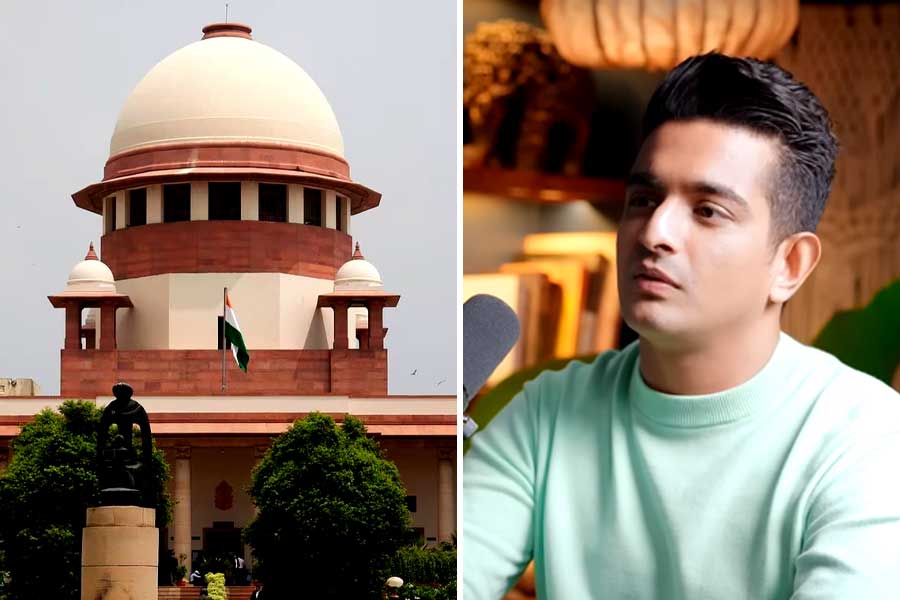India Got Latent: a manufactured controversy
The recent backlash against Ranveer Allahbadia over his appearance on Samay Raina’s show India’s Got Latent is a textbook example of aggressive and selective outrage. During the show, he was asked a controversial hypothetical question: Would you rather watch your parents have sex every day for the rest of your life or join in once and stop it forever? While the question was undoubtedly crude, it is not unprecedented in the realm of comedy. In fact, years earlier, comedian Kanan Gill had posed the exact same question in a lighter setting, yet it had largely gone unnoticed
Despite the overblown reaction, it is essential to ask: is this really the issue that warrants such national attention? In a country where public figures routinely make far more offensive remarks without consequence, why has a digital content creator become a scapegoat?
Cultural sensitivities vs. evolving crudity, humour
Humour is subjective. What is offensive in India may be considered routine in other cultures. In the U.S., controversial animated shows such as South Park have consistently pushed the boundaries of satire and dark humour, yet they continue to thrive without state intervention. Similarly, It’s Always Sunny in Philadelphia has built its brand around being politically incorrect but has never faced legal consequences.
In contrast, India’s deep-rooted conservatism often prevents it from embracing even the mildest forms of irreverent humour. The backlash against Allahbadia is proof that Indian digital creators still walk a tightrope when it comes to free expression.
Selective outrage and hypocrisy
The outrage surrounding Ranveer Allahbadia raises the larger question of hypocrisy in India’s censorship culture. Several BJP politicians have a well-documented history of making inflammatory and crude remarks, yet they rarely face legal scrutiny. Meanwhile, comedians and digital creators are regularly policed for their content.
Furthermore, Bollywood films have long normalised sexual double entendres and explicit jokes, yet these instances do not attract the same vitriol. The disproportionate outrage against Allahbadia is reflective of a systemic bias—where those in power enjoy unchecked privileges, while independent voices are muzzled.
Supreme Court’s relief and its implications
The Supreme Court granted interim relief to Ranveer Allahbadia, staying his arrest in multiple FIRs filed against him. The order specifically protects him from immediate detention in cases registered under Sections 79, 196, 296, 299 of the Bharatiya Nyaya Sanhita, 2023, read with Section 67 of the Information Technology Act, 2000 in Maharashtra and Sections 79/95/294/296 of the BNS, along with the Cinematograph Act, 1952, and the Indecent Representation of Women (Prohibition) Act, 1986 in Assam
The Court, however, imposed strict conditions: he must join the investigation whenever summoned, deposit his passport with authorities, and refrain from airing any content on YouTube or other media platforms until further orders. While the interim protection ensures his immediate liberty, the restrictions imposed indicate judicial discomfort with his remarks and set a concerning precedent on digital expression.
Supreme Court order dated 18-02-2025 on Ranveer Gautam Allahbadia v. Union of India; IA no. 41866/2025 issued by Surya Kant, Nongmeikapam Kotiswar Singh JJ may be read here:
Legality of incest and the misrepresentation of Allahbadia’s remarks
One of the fundamental flaws in the backlash against Allahbadia is the assumption that his remarks amounted to advocating an illegal or universally condemned act. However, incest laws vary widely across countries. Nations such as Belgium, France, Japan, Portugal, and Spain do not criminalize incest between consenting adults, while other countries impose stringent legal prohibitions. This variation highlights the subjectivity of moral outrage, where cultural and legal perspectives differ significantly. While his comment may have been in poor taste, framing it as an endorsement of criminal activity is a misleading exaggeration.
The dangerous precedent of digital censorship
What makes this controversy even more concerning is how it is being weaponized to justify greater control over digital platforms? The government is now citing this incident as a reason to push forward the Digital India Bill, which aims to regulate online content more stringently
If enacted, such laws could stifle not only comedic expression but also political criticism, independent journalism, and artistic creativity. The internet, which has long been a space for free expression, is now at risk of becoming another extension of the state’s moral policing.
A moment of reflection
The backlash against Ranveer Allahbadia is not just about one crude joke—it is emblematic of a larger struggle between free expression and selective censorship in India. If a young content creator can be vilified for an offhand remark while politicians and public figures enjoy impunity for far worse, it is clear that India’s approach to free speech is deeply flawed.
Instead of vilifying Allahbadia, it is time for a broader conversation about the inconsistency in how India polices speech. Selective outrage only weakens the foundation of free expression, making digital spaces less diverse, less honest, and ultimately, less free.
Related:
Proposed Broadcasting Services (Regulation) Bill, 2023: threat to free speech and media independence
